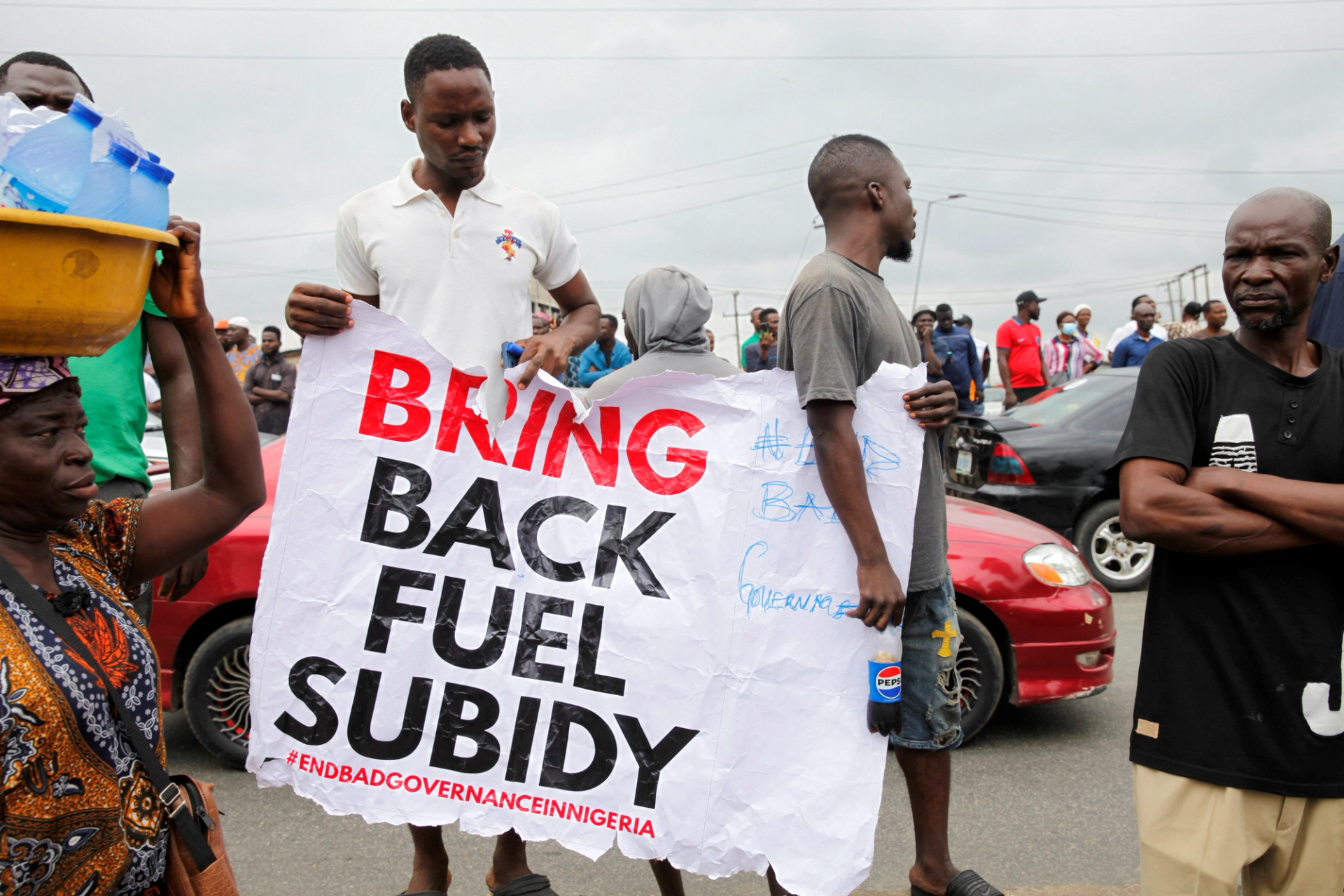The News
LAGOS/KANO — Nigerians took to the streets on Thursday to protest the rising cost of living in the country. Thousands of residents in the capital Abuja, Lagos, and other major cities marched in grievance with banners bearing complaints about hunger, bad governance, and the effects of soaring inflation.
Protesters in some instances were met with forceful reaction by law enforcement agencies.
In Abuja, police officers deployed tear gas before midday to deter those who gathered around the Eagle Square, an open-air auditorium close to the Nigerian president’s residence often used for presidential ceremonies. A court order granted to the capital city’s minister on Wednesday required protests to be limited to a stadium located away from the central business and government agency districts.
In Kano and Lagos — Nigeria’s largest states by population — thousands of protesters marched through several parts of each metropolis, including towards the respective governors’ lodges. Protesters at the Lekki tollgate in Lagos were also hit with tear gas, according to multiple reports by local news media. The tollgate is a significant site: In Oct. 2020, police fired at unarmed protesters to forcefully end the EndSARS protest against police brutality.
Many mobile internet subscribers to Nigeria’s four major network operators reported poorer-than-usual connectivity on Thursday. A spokesperson for the Nigerian Communications Commission, which oversees internet service providers, told Semafor the agency had not received quality of service complaints and said it did not direct operators to control access.
Know More

This week’s protests come three months after the first anniversary of Bola Tinubu’s inauguration as Nigeria’s president. His tenure has been marked by rapid-fire policy changes, including ending a popular fuel subsidy and dramatic foreign exchange reforms. The impact has been much higher prices for food and transportation for households, and inflation has skyrocketed to 34%, according to the state’s statistics agency. Tinubu’s presidency has also coincided with the increasing exit of multinational consumer goods companies from the US giant Procter & Gamble, to British conglomerates Unilever and Diageo.
This marks the second cost of living protest since Tinubu became president. A two-day march in February was led by the nation’s two largest labor unions and centered around a demand for an increased minimum wage. Tinubu signed a 133% increase into law earlier this week, raising the base monthly salary in Nigeria to 70,000 naira ($46). The law will be reviewed every three years.
In an attempt to stop the protests, the president met with traditional and religious leaders last week. However, presidential aides accused an opposition candidate that ran in last year’s election of aiming to foment “anarchy” through the protests.
Room for Disagreement
The Nigerian Baptist Convention, an evangelical Christian denomination, said “protest is not an option” and asked its members not to participate in it. The group said the country is in a state of peace and that its current problems did not begin with Tinubu. “When we were being plunged into a painful future by some past leaders, we did not know that we were heading for where we are now. Therefore, all blame cannot be heaped on our current leaders,” the convention’s president wrote in a statement.
The View From the Protesters
Demonstrators in Kano, the northern region’s commercial nerve center, embodied the ongoing protests’ most specific anxieties and demands. “You are seeing me alive but I am dead because eating food has become a big problem,” said 35-year-old Audu Bature. He wants Tinubu to “restore Nigeria to the situation he found it before assuming office.”
Muhammad Yakubu, 75, said he joined the protests to show solidarity as he is no longer able to afford the shop he rents for his business in the city. “If this situation of bad politics persists we will get to a point where democracy will be useless and these youth need to be managed,” he warned.
Bilikisu Alhassan, 31, joined the protests because “there is too much hunger and poverty in the country,” demanding a return to government policies that provided cheaper petrol to Nigerians. “As you can see I am wearing a bathroom slippers to go out, I can’t even wear a good shoe. I used to wear nice clothes before, this has become history,” she said.
